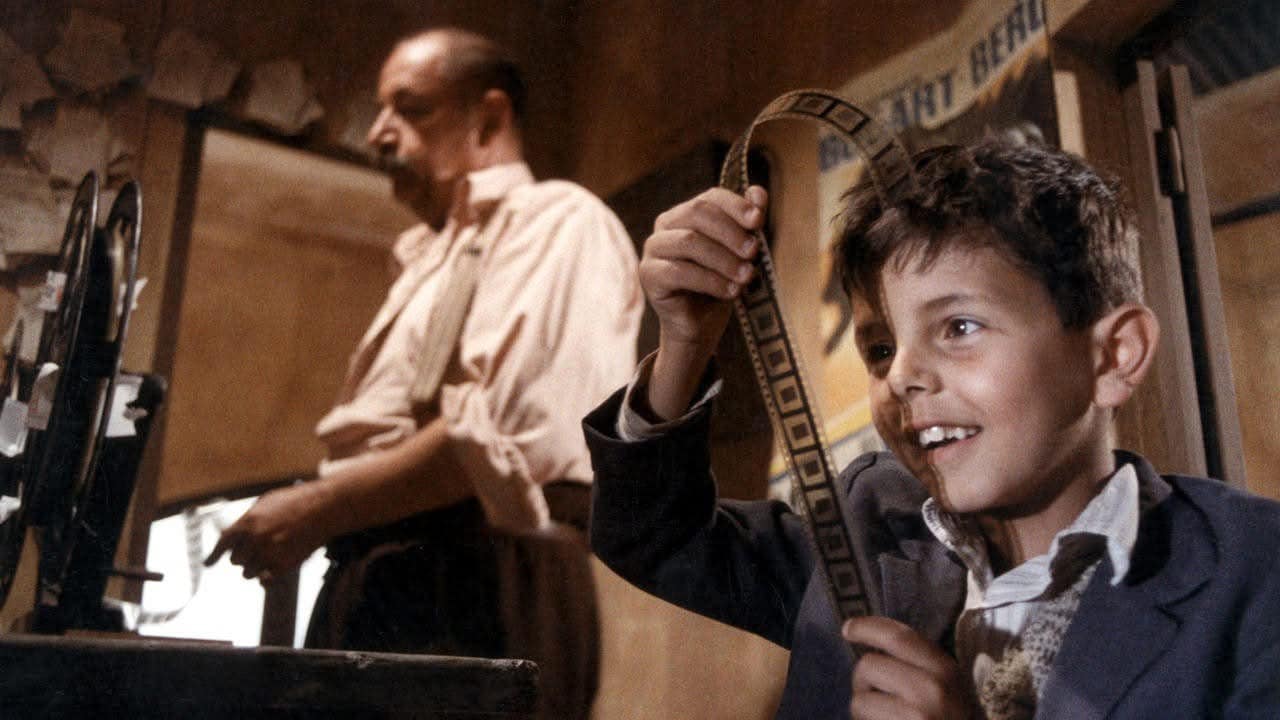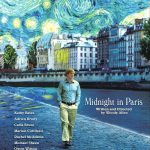Cinema Paradiso (1988)
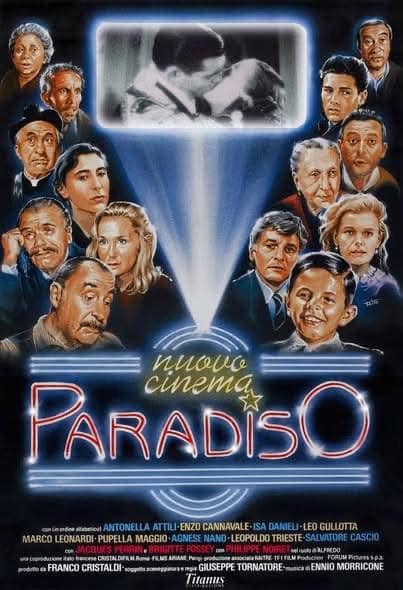
![]()
![]() Cinema Paradiso (1988)
Cinema Paradiso (1988)
In a small Sicilian village, where the passage of time is as steady as the ocean waves, Cinema Paradiso takes us on an emotional journey through the life of a young boy, Toto, and his unbreakable bond with the local movie theater, the Cinema Paradiso. Directed by Giuseppe Tornatore, this enchanting film is a love letter to cinema itself, exploring the way movies shape our lives, our dreams, and our relationships.
The story follows Toto, who, as a child, forms a deep friendship with Alfredo, the projectionist of the Cinema Paradiso. The theater, once a magical place where people gathered to escape reality, becomes a sanctuary for Toto, nurturing his passion for film. Through Alfredo’s mentorship, Toto learns about the art of cinema and the power of storytelling. However, as the years pass and Toto grows up, he must face the inevitability of change—leaving behind the innocence of childhood, the theater, and Alfredo, all while holding on to the memories that have defined him.
The theater, once a magical place where people gathered to escape reality, becomes a sanctuary for Toto, nurturing his passion for film. Through Alfredo’s mentorship, Toto learns about the art of cinema and the power of storytelling. However, as the years pass and Toto grows up, he must face the inevitability of change—leaving behind the innocence of childhood, the theater, and Alfredo, all while holding on to the memories that have defined him.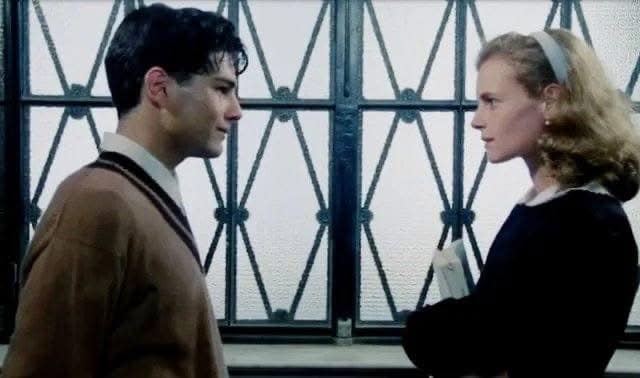
 The theater, once a magical place where people gathered to escape reality, becomes a sanctuary for Toto, nurturing his passion for film. Through Alfredo’s mentorship, Toto learns about the art of cinema and the power of storytelling. However, as the years pass and Toto grows up, he must face the inevitability of change—leaving behind the innocence of childhood, the theater, and Alfredo, all while holding on to the memories that have defined him.
The theater, once a magical place where people gathered to escape reality, becomes a sanctuary for Toto, nurturing his passion for film. Through Alfredo’s mentorship, Toto learns about the art of cinema and the power of storytelling. However, as the years pass and Toto grows up, he must face the inevitability of change—leaving behind the innocence of childhood, the theater, and Alfredo, all while holding on to the memories that have defined him.
Cinema Paradiso is a visual masterpiece. Tornatore and cinematographer Blasco Giurato capture the beauty of the Italian landscape, where the sun-kissed shores and narrow, cobbled streets of the village serve as the perfect backdrop to this poignant tale. The film’s evocative score by Ennio Morricone, filled with sweeping orchestral melodies, intensifies the emotional depth of the story, making every scene feel like a dream.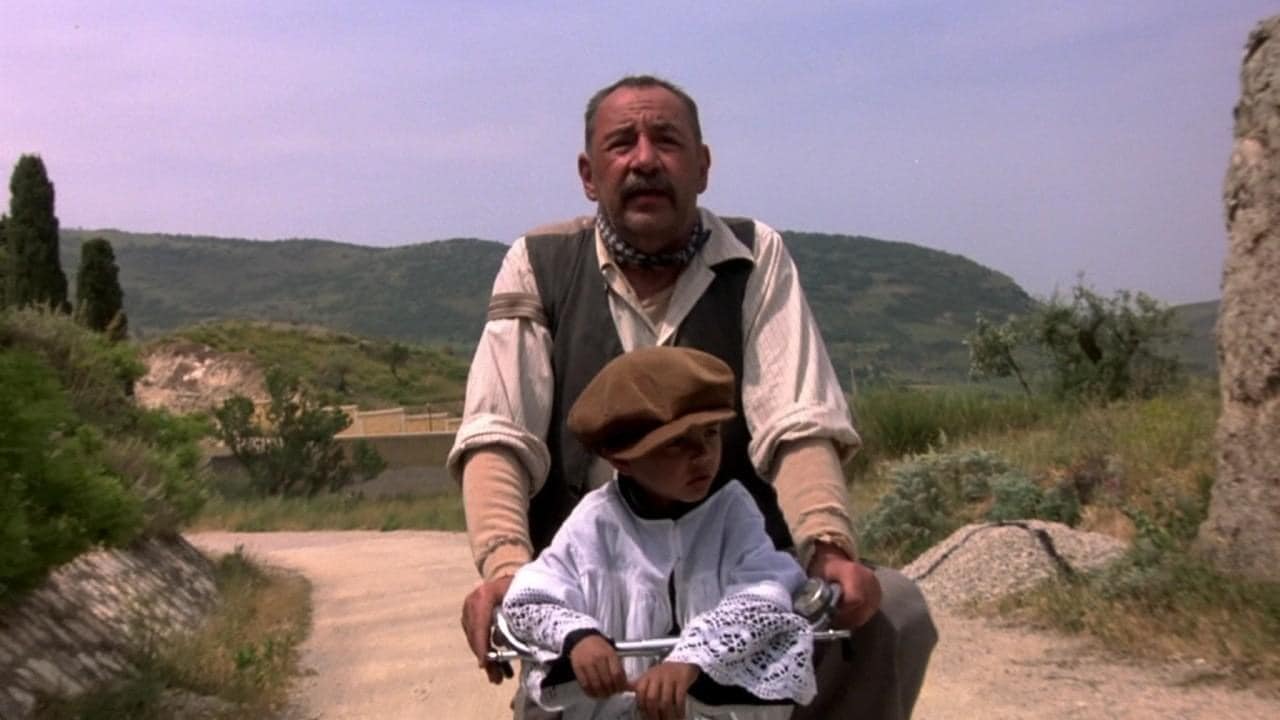

The film’s central themes—nostalgia, the passage of time, and the bittersweet nature of growing up—resonate deeply with audiences of all ages. At its core, Cinema Paradiso is about the moments that define us, the people we meet, and the art that transcends generations. It’s a film that reminds us of the power of memory, and how even the smallest moments, captured on screen, can leave an indelible mark on our hearts.